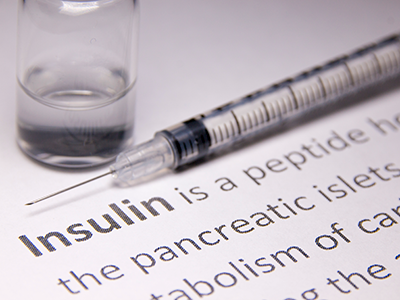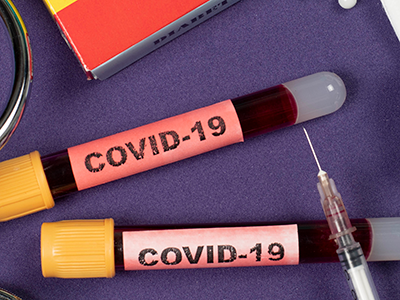Experts from Children’s National Hospital, Fran Cogen, M.D., CDE, director of the Childhood and Adolescent Diabetes Program, and Brynn Marks, M.D., MS-HPEd, endocrinologist, want to raise awareness of diabetes and debunk some common myths.
Before exploring the misconceptions, we need to understand the different types of diabetes and their causes.
The most common diabetes types are Type 1 and Type 2, although there are others, including those related to cystic fibrosis, gene mutations and pancreatic damage. Of the more than 30 million Americans living with diabetes, an overwhelming majority have Type 2, while just 5% have Type 1.
Type 1 diabetes occurs after an autoimmune attack causes the body to lack insulin. Without insulin, the cells in the body are unable to take up glucose and use it for fuel, resulting in high blood sugar. Type 1 diabetes occurs in people with a genetic predisposition, and requires “something” in the environment to trigger the disease. On the other hand, Type 2 diabetes is caused by resistance to the body’s normally produced insulin, despite the fact that people with Type 2 diabetes may make even more insulin than the average person. High blood sugars occur in Type 2 diabetes when the body can no longer produce enough insulin.
Myth 1: Eating too much sugar causes diabetes
Although the precise cause of Type 1 diabetes is still unknown, we know that the autoimmune attack on the pancreas is not caused by eating too much sugar. However, the number one risk factor for Type 2 diabetes is obesity and a diet high in sugar, as well as familial dispositions. Although there is not a direct link between sugar intake and many types of diabetes, the importance of a healthy diet in managing diabetes of all types cannot be underestimated.
Myth 2: Being overweight causes diabetes
Obesity is the number one risk factor for Type 2 diabetes and poor dietary habits are linked to obesity. Although obesity predisposes people to diabetes, not everyone who is obese develops diabetes. Family history, ethnicity, diet, exercise and certain medications (including steroids and psychiatric medications) all impact the risk for developing diabetes. Although obesity does not directly cause Type 1 diabetes, there is some thought that being overweight or obese may lead diabetes to develop sooner.
Myth 3: Having diabetes means you must eat foods that are different from everyone else’s
People with diabetes should follow the same healthy diet recommended for people without diabetes. When children are diagnosed with Type 1 diabetes, our diabetes team emphasizes that there is no food they cannot eat. While a healthy diet is important to control blood sugars, there is always room for the occasional treat or dessert on special occasions.
Myth 4: A diabetes diagnosis means you automatically need insulin
Insulin is just one of many treatment options to control blood sugar in patients with diabetes. The goal of treatment in diabetes is to keep blood sugar as close to normal as possible, so both short- and long-term complications are minimized. For patients with Type 1 diabetes, who make either no or only minimal amounts of insulin in their own bodies, insulin injections are the cornerstone of treatment. Insulin doses are customized to match the age, weight, activity and food intake of each person.
In Type 2 diabetes, the need for insulin depends on the degree of blood sugar elevation. Initial treatment often includes lifestyle modifications such as diet and exercise that assist with weight loss. If blood sugar continues to be mildly elevated, oral medications can often be used to make the body more sensitive to the insulin that is being produced, to increase insulin production or to increase the amount of glucose being excreted in the urine. Some other injectable medications can help to increase insulin production and decrease appetite. Insulin therapy is used in Type 2 diabetes when the blood sugar cannot be controlled with lifestyle modifications or oral medications.
Myth 5: Only older people get diabetes
Diabetes can occur in people of all ages – from infants to older adults. The timing of diabetes onset also depends on the underlying cause. Infants with single-gene mutations are diagnosed with diabetes at just a few months of age. Type 1 diabetes can occur in both children and adults. The insulin resistance that causes Type 2 diabetes rarely occurs before puberty, but can affect adolescents and older adults. However, at any age, people can and do live well with diabetes!
This blog post originally appeared in Northern Virginia Magazine online.
 https://riseandshine.childrensnational.org/wp-content/uploads/2023/11/ketogenic-foods-feature.png
300
400
Rise and Shine
https://riseandshine.childrensnational.org/wp-content/uploads/2017/11/childrens_riseandshine_logo.jpg
Rise and Shine2023-11-16 15:06:312023-11-16 15:15:01Using ketogenic diets to manage seizures
https://riseandshine.childrensnational.org/wp-content/uploads/2023/11/ketogenic-foods-feature.png
300
400
Rise and Shine
https://riseandshine.childrensnational.org/wp-content/uploads/2017/11/childrens_riseandshine_logo.jpg
Rise and Shine2023-11-16 15:06:312023-11-16 15:15:01Using ketogenic diets to manage seizures



 Brynn E. Marks, MD, MSHPEd, was a pediatric endocrinologist at Children's National.
Brynn E. Marks, MD, MSHPEd, was a pediatric endocrinologist at Children's National.


















Leave a Comment
Want to join the discussion?Feel free to contribute!